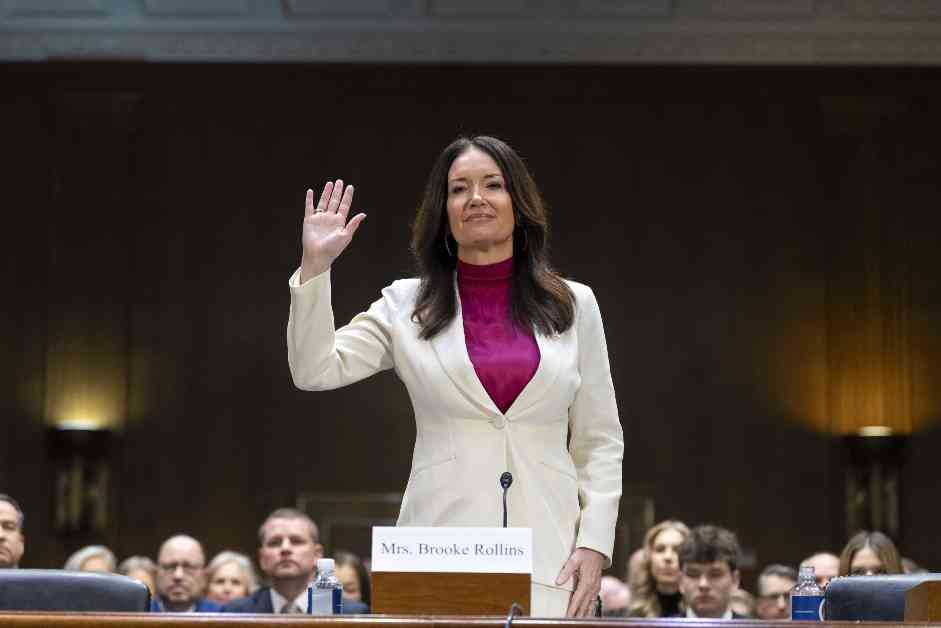The recent changes in White House policies have sent shockwaves through the Vermont workforce, leading to a series of layoffs and furloughs that have left many employees reeling. The impact of these decisions was keenly felt just hours after Brooke Rollins was sworn in as secretary of the U.S. Department of Agriculture in Washington, D.C. Richard Amore, head of economic development for USDA’s Rural Development team in Vermont, received a devastating email notifying him of his immediate termination. This abrupt decision affected not only Amore but also several other probationary employees in the Rural Development office, leaving them without the job security they had hoped for.
Impacts Across Federal Agencies
Amore’s experience is just one example of the widespread repercussions of recent policy changes affecting probationary employees across federal agencies. The sudden layoffs have extended to various USDA regional offices, including the Farm Service Agency, the Natural Resources Conservation Service, and the National Forest Service. The termination of probationary employees, who lack the protections afforded to longer-serving staff, has left many individuals and their families uncertain about their future.
The effects of these layoffs have been deeply felt by those directly impacted, including a federal employee in northern New England who expressed their struggles with the situation. Witnessing colleagues being let go simply because they were recently hired has raised concerns about the capacity of affected agencies to fulfill their programs effectively. The loss of valuable talent and expertise has left many employees questioning the rationale behind these decisions and the long-term consequences on their work.
Challenges Beyond Federal Agencies
The disruptions caused by the White House policies have not been limited to USDA offices but have also extended to other organizations, such as TetraTech, a consulting and engineering firm focused on water, environmental sustainability, and international development. The furlough of 61 employees from TetraTech’s team has left individuals like Jen Peterson, a food security specialist, uncertain about their employment status. The temporary nature of these furloughs has raised concerns about potential future layoffs within the company, affecting both employees and their ongoing projects.
The impact of these policy changes has also reverberated internationally, affecting organizations like the Northeast Pasture Consortium, which relies on USDA funding for its operations. The reimbursement process for organizations operating on a claim basis has been significantly delayed, leading to financial uncertainty and challenges in meeting operational costs. The ripple effects of these disruptions are not limited to Vermont but have also been felt across the agricultural sector globally, impacting volunteers like Jim Corven and Bill Zimmerman who are involved in sustainable farming practices.
As the workforce continues to navigate the fallout from these policy changes, Senator Peter Welch has taken steps to address the challenges faced by Vermont businesses and organizations. By organizing a roundtable discussion to hear firsthand accounts of the impacts, Welch is working to advocate for the immediate reversal of the funding freeze and the restoration of critical payment portals. His efforts underscore the importance of public outcry in influencing political decisions and ensuring the well-being of affected individuals and communities.
In the face of these unprecedented challenges, the resilience and determination of Vermonters and others impacted by these policy changes are evident. Despite the uncertainty and hardships brought about by the recent decisions, there is a shared commitment to finding solutions and advocating for the restoration of vital resources and support. As individuals and organizations continue to navigate these turbulent times, their stories serve as a reminder of the human impact behind policy decisions and the importance of collective action in shaping a more equitable and sustainable future.









